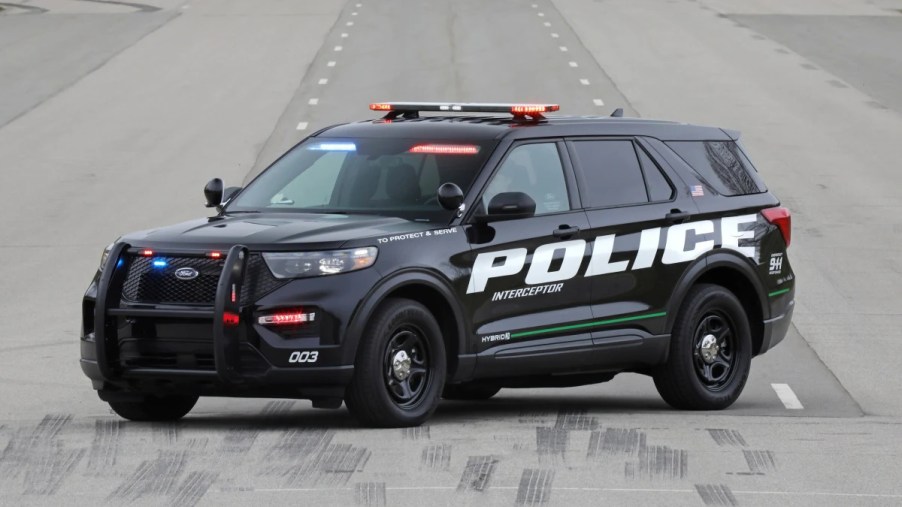
Ford Vehicles Will Automatically Snitch on You for Speeding
Everyone knows the rules. Snitches get stitches! Don’t be a rat. However, what if your car snitches on you? This could become a reality with Ford vehicles, as new speeding deception tech can report you directly to the cops.
Ford vehicles will detect speeding and tell the cops
It’s no secret that Ford and the police have a special relationship. Think about all of the police interceptors you see including the F-150, Mustang, and Explorer.
Now Ford vehicles could take that inceptor relationship to the next level by releasing a new system known as ‘Systems and Methods for Detecting Speeding Violations.’
Ford filed a patent with the U.S. Patent and Trademark Officer and it could enhance police surveillance capabilities by telling officers where people are speeding.
Onboard sensors in the vehicles could detect speeding violations by drivers and other cars on the road. Ford vehicles would use cameras to capture images of the speeding cars along with GPS location data and other necessary information.
Then the data will be sent directly to law enforcement officers and they can decide to initiate a pursuit. So instead of cops looking for speeders, the speeder’s information will be sent directly to them.

Of course, this tech raises privacy, legal, and ethical concerns. But other apps may already be reporting your speeding data to insurance companies, prompting them to raise your rates without saying anything.
Also, police surveillance methods already include things like red-light cameras. But currently, officers don’t receive car data.
Some rumors suggest that automakers are already collecting sensitive information such as facial features, behavior characteristics, sexual orientation, and religious beliefs.
In fact, here’s what Ford has to say on the matter, “The patent explicitly states this idea for a system is specific for application in law enforcement vehicles, such as the Ford Police Interceptor, as it would automate a capability that law enforcement already have in use today, except this could utilize the built-in systems and sensors in law enforcement vehicles in the future.
This patent does not state that driving data from customers’ vehicles would be shared with law enforcement, which is what some media have incorrectly reported. And note, patent applications are intended to protect new ideas but aren’t necessarily an indication of new business or product plans.”
Ford allows drivers to decide if they want to share connected vehicle data or to turn off the vehicle connectivity system. But doing so restricts access to other useful applications and services that require this data.
The patent for Ford Vehicles is still in the early stages. It could be a few years before Ford allows its cars to snitch on speeders. Stay tuned for updates.



